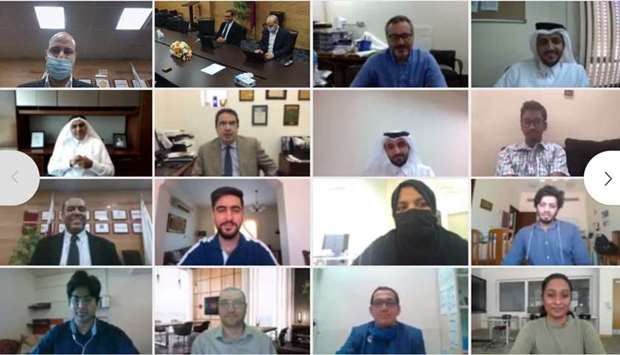Qatar University’s College of Engineering (QU-CENG), Hamad bin Khalifa University (HBKU) and Qatar Computing Research Institute (QCRI) on Thursday announced at an online event the winners of the Artificial Intelligence (AI) National Competition.
In track one: Concept and Design - Dabeeruddin Syed and Ameena Zainab came first, Tareq Yousef Kamel AlKhraishi second, and Abhinav Balram Gudavalli third. In track 2: Proof of concept and Demos - Nandhini Subramanian was first, Anas Mohammed Tahir and Yazan Hazim Ali Qiblawey second and Serkan Kiranyaz and Muhammad Uzair Zahid third.
QU-CENG dean Dr Khalid Kamal Naji said: “This is a national competition challenging students, developers, professionals, and researchers to develop and demonstrate how humans can collaborate with powerful AI technologies to tackle some challenges for different applications. This opportunity raised awareness of AI technologies in Qatar, supported building local capacity in this timely and crucial area, and provided a platform for participants to share AI ideas and applications”.
QCRI director Dr Ahmed K Elmagarmid explained that the competition had five phases: Idea Submission, Announcement of shortlisted ideas, Solution design / development duration Project Submission, Project testing and demos (track 2), Announcement of winners”.
HBKU's College of Science and Engineering dean Dr Mounir Hamdi said the competition recognised developers who are paving the path for future innovative AI technologies that can be deployed to support infrastructure and address challenges for different applications.
QU-CENG's Research and Graduate Studies associate dean Dr Ahmed Masoud said: “We looked for creative and innovative AI solutions, which can be deployed to resolve practical problems including but not limited to: Healthcare solutions, AI in Education, automatic and real-time detection of trolls over social media, real-time AI solutions for assisting sports referees to take prompt decisions, crowd monitoring and behaviour analysis and prediction, detection and prevention of attacks and malware, drones emergency services, and logistics impacting the supply chain and security challenges due to the blockade.

